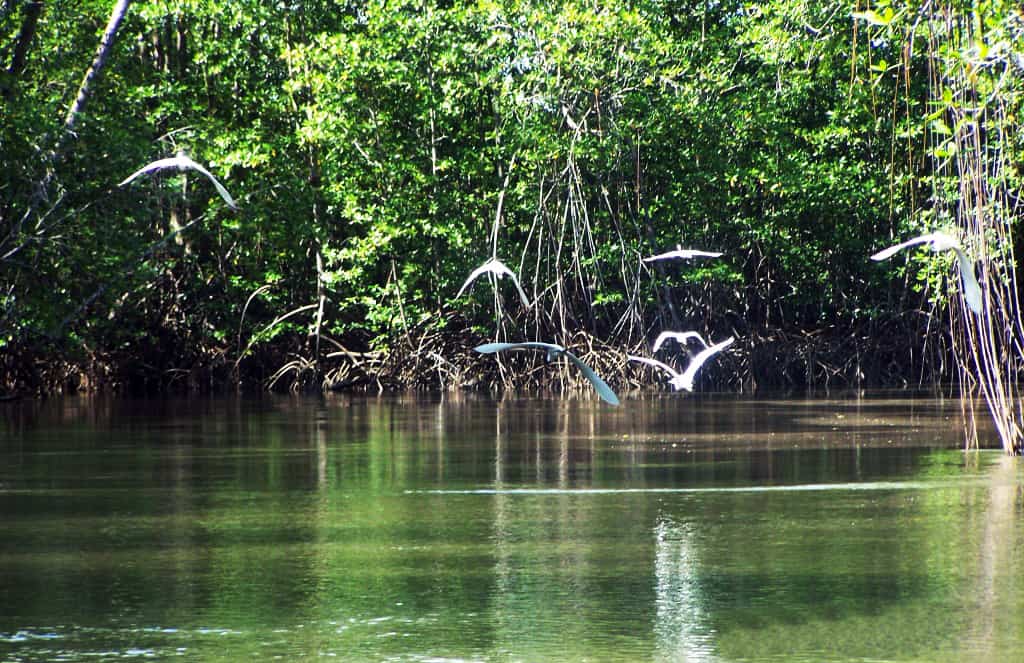A bird species rarely seen in Costa Rica was discovered hiding out in wetlands near the Nicaraguan border.
Botaurus lentiginosus, aka the American Bittern, hasn’t been seen in the country in more than a century, and until now, no photographic evidence existed that this mottled member of the heron family was here at all.
Less exciting but interesting nonetheless, Pardirallus maculatus, or the Spotted Rail, was also seen in the Queso Medio wetlands near Los Chiles, Alajuela, in northern Costa Rica. This bird is known to inhabit some areas of the northwestern province of Guanacaste, but has never been recorded in the Queso Medio wetlands.
The discoveries highlight how little is known about these wetlands, which are not included in any type of Costa Rica’s protected areas, experts said.
Ornithologists Paola Gastezzi and Daniel Martínez began surveying bird species in the Medio Queso wetlands last October as part of a project initiated by LAC-Biosafety to study the ways wild rice seeds are dispersed by birds. LAC-Biosafety is an organization aimed at helping participating countries comply with the Cartagena Biosafety Protocol, which promotes conservation and sustainable use of biological diversity. Costa Rica, Peru, Brazil and Colombia signed the protocol in 1992.
“These new distribution records of two types of rare birds in the country are significant findings and provide important information for understanding the dynamics of wetlands and the birds that inhabit them,” Gastezzi said.
According to Cornell University’s ornithology lab website, the American Bittern’s distribution ranges from northern Canada in the summer to southern Mexico in the winter. The birds spend their lives stalking marshy areas where their mottled plumage affords them excellent camouflage. They feed on crayfish, insects, fish and amphibians.
The National Audubon Society website indicates the American Bittern has a worldwide population of approximately 3 million.
Angie Ramírez, a spokeswoman for LAC-Biosafety, said results of the study will be used to determine the possible effects of introducing genetically modified rice varieties into the area. The Medio Queso wetlands were chosen as the site of the study because it is the area with highest concentration of wild rice grown in the country. When researchers started the investigation, Ramírez said, they realized no survey of the types and quantities of birds found in Medio Queso existed.
“The discovery of this species in these wetlands is a very surprising event,” Gastezzi told The Tico Times. “There is no information about this species since the beginning of the century, and there have been no photographic records.”
Wetlands, besides serving as habitat for bird and animals species, offer important environmental benefits. Mud in wetlands can trap up to three times as much carbon dioxide – a major contributor to climate change – as a tropical forest. The areas are also important in preventing erosion and removing contaminants from water (TT, Oct. 28, 2011).
“Wetlands are very important ecosystems,” said Gastezzi. “They have a richness of biodiversity, be it of plant life, insects, birds and mammals. They also support local fishing.”
“It is very important to conserve [Medio Queso], not only because of the presence of this species, but also because of other undiscovered species potentially found here that use it as a refuge during migration,” Gastezzi added.
There is a sense of urgency to these studies, Gastezzi said, due to a proposal to build a new highway in the area.
The bird census of Medio Queso is just one of seven sub-projects included in the rice-dispersion study. Other research areas include an analysis of insects found in local wetlands, a gene-flow study and socioeconomic study. Research results will be made public May 24.






